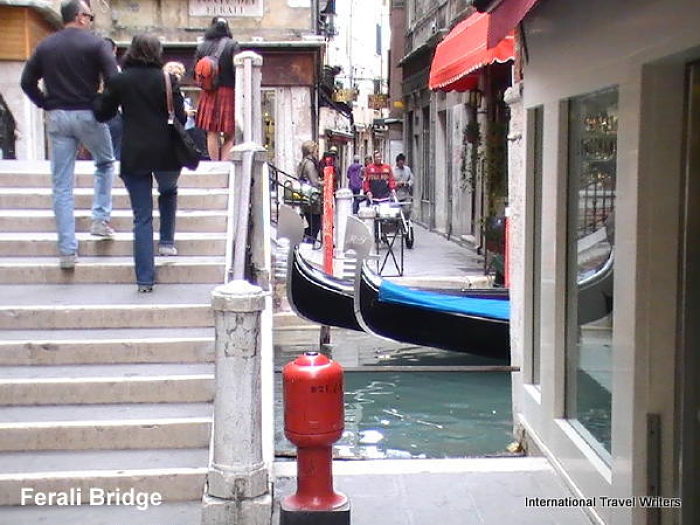Live on the Road - "Going Native" via Language Immersion
(by T.W. Anderson)

Going Native
I’ve touched on the subject many times throughout my publications: the importance of language for long-term cultural immersion and living in another country. But perhaps it was Nelson Mandela who said it best when he spoke, “If you talk to a man in a language he understands, that goes to his head. If you talk to him in his language, that goes to his heart.”
Getting in on the ground floor and establishing yourself as a professional who not only respects the culture of a country enough to live there like a local, but also takes the time to learn the language, you go so far above and beyond what the average tourist and traveler is willing to do. And it will come back with karmic blessings tenfold in so many wonderful, unexpected ways.
Its common sense that learning the local lingo can help you negotiate a better rate for long-term apartment rentals, for transport, or at the open markets for goods, services and food, but speaking the local language is more than just a negotiating tool. As Mandela said, it’s the back door into a person’s heart. You aren’t just talking business when you speak the local language: you are speaking to their culture.
The respect you give is equally given in most countries around the world, and there is no greater form of respect than speaking the language of the country you are in. Think of it as a dog coming into another dog’s territory; he knows he’s his own dog, but he’s also on someone else’s turf. The head is usually bowed down, the tail slightly tucked, as a form of deference, and respect. Your house, your rules, so to speak.
Language is the back door to culture, of that there is no doubt, but what I really want to talk to you about with today’s episode is the ability to leverage your language expertise for your brand, your blog and your business by going native. Because while it certainly opens up a variety of cultural opportunities, it can also lead to numerous business opportunities that would otherwise pass you by.
So many foreigners make the arrogant mistake of believing that simply because they speak English they can magically find work in any country around the world. This is so far from beyond the truth. Many are the misinformed nomad types who have unintelligently packed a bag and set off to foreign soil with the belief that they’ll find high-paying work on a whim, only to find they lack a work visa and instead need to scrap for what they can under the table.

Sometimes that might be teaching English lessons for pennies in comparison to what you can make with licensing, and sometimes it’s a lucrative tutoring gig for a private business guru. More often than not, it’s bartending at one of the local expat dives or sweeping floors and cleaning bathrooms in a hostel in exchange for free room and board.
But with the language under your belt you are not only primed and ready to get a work visa for the country you are living in, but you’ll suddenly find yourself a step above the locals in terms of competition for jobs. Especially if you happen to have a diploma from a Western university or skills relating to a tech-related job, such as social media, blogging, graphic design and website design.
These skills are in high demand in developing countries around the world, but guess what? The work they are looking to complete isn’t for the English market. It’s for the rapidly developing Spanish market, the Portuguese, the Indian, Russian, Chinese, Japanese, German, French, Arabic and beyond.
But if you can’t speak the language you won’t find these opportunities being presented to you. Instead, you’ll be relegated to the highly-competitive English-speaking market that is still suffering the so-called “global crisis” with a lack of jobs and record numbers of skilled workers all competing for the same jobs.

Meanwhile, those of us with multiple languages under our belt are finding plenty of work abroad, in other countries, both online as well as on the ground at the local level. For example, we’ve done presentations, consultations, social media management, advertising, classes and more, in Spanish, for a variety of clients. Impossible had I only spoken English.
Latin America is the #1 largest job market in the world as of 2014, with a massive boom going on with digital work. The highest paid workers in Mexico, for example, are freelance graphic designers and website designers, along with freelance writers and social media managers.
Cuing into the local respect factor, when a business finds out that you not only have the relevant skills, but that you’ve also taken the time to learn the language of the country you are visiting or living in, they are that much more likely to hire you than a local given the simple fact that you’ve got more experience in the digital world…and you are bi-lingual. Or tri or beyond.

From a business standpoint, it makes all the sense in the world to pick up an extra language or three…and no sense whatsoever to only speak your native tongue. The more languages you know, the more opportunities you have to make money, to find opportunities to expand your business, to grow and to expand in countries and directions you may never have thought possible in the beginning. It’s also a powerful tool in networking, co-working and building up those relationships that lead to working partnerships and beyond in places that you least expect it.
At the end of the day the only person holding you back from your full potential…is you. If you want to be a close-minded, single-language Westerner with a chip on your shoulder about your native tongue…you’ll find yourself with limited options. But if you expand your mind, go native in every destination you visit, and choose places where you can maximize your immersion for the benefit of your adventure and your business…well, the sky is the limit.
T.W. Anderson has been traveling the world full-time since January of 2008. He is the author of books which detail how to build a blog, brand and income and travel the world without a budget. His website is Marginal Boundaries.com
Related Articles......
Return from Going Native to International Travel Homepage
Having trouble finding what you need? International Travel Writers Index and Map
OR
Do you have a travel experience or story to share? Share your travels here!
By Carolynne Woods, © Copyright 2010-2020. International Travel Writers.com All rights reserved images and text

















